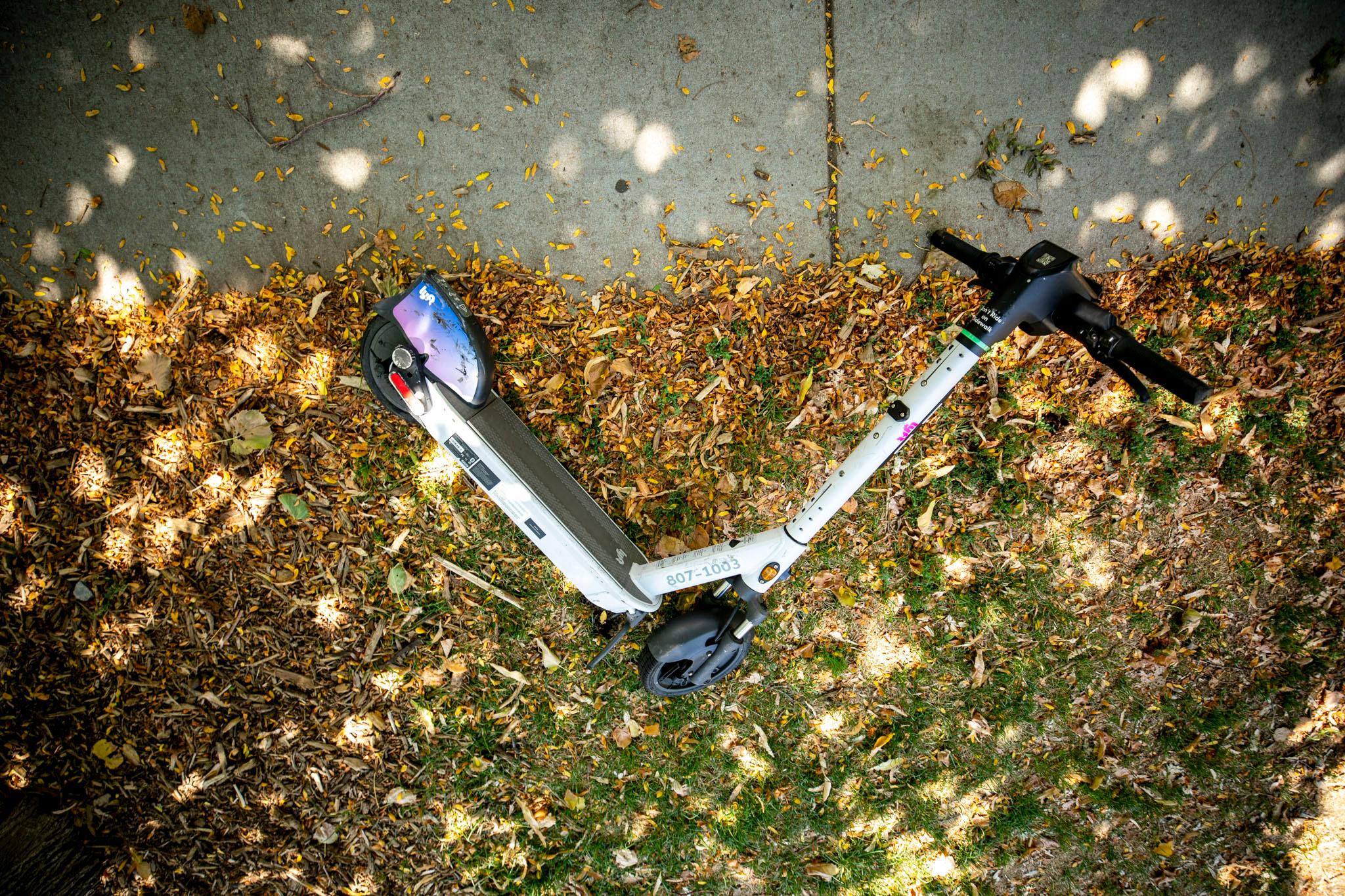Since they seemingly fell from the sky one night in 2018, shared electric scooters and bikes have given Denverites a convenient way to zip around town without worrying about whether their train is going to show up or how much parking will cost.
But they brought plenty of issues too, including sidewalk riding, injuries and scooters left strewn about. City leaders have tried for years to address those problems with varying degrees of success.
Now, City Council appears primed to tackle the issue again. City Councilman Chris Hinds — who represents downtown, Capitol Hill, and nearby neighborhoods — presented policy ideas to his colleagues earlier this week aimed at enforcing the rules that the city has already passed over the years.
Key among them: Scooters must be ridden in bike lanes or on the right side of the road and, with few exceptions, not on sidewalks. When parked, they can’t block pedestrians and wheelchair users.
But as Westword reported last week, Denver Police rarely enforce such rules.
“Pedestrians feel unsafe on sidewalks,” Hinds, a wheelchair user himself, told a Council meeting on Monday. “Conversely, riders feel unsafe on streets … So people ride on the sidewalk.”
While Hinds hasn’t formally proposed legislation, the ideas he floated Monday centered on making the scooter companies themselves actively enforce laws through fines and technology.
He summed up the strategy this way: “I don't care [how you do it], vendors, but it's on you to comply with the laws that are already on the books.”
Denver may have to balance arm-twisting with keeping scooter companies from fleeing.
San Diego tried to strong-arm scooter companies a few years ago when it adopted rules that, among other provisions, forced companies to automatically detect when scooters were on sidewalks and slow them to a walking pace.
The companies soon left, which had city leaders discussing whether to soften those rules.
Hinds has said he doesn’t want scooters to leave Denver, and has praised their ability to take cars off the road. Still, he said, something must be done to make sidewalks safer for pedestrians and wheelchair users.
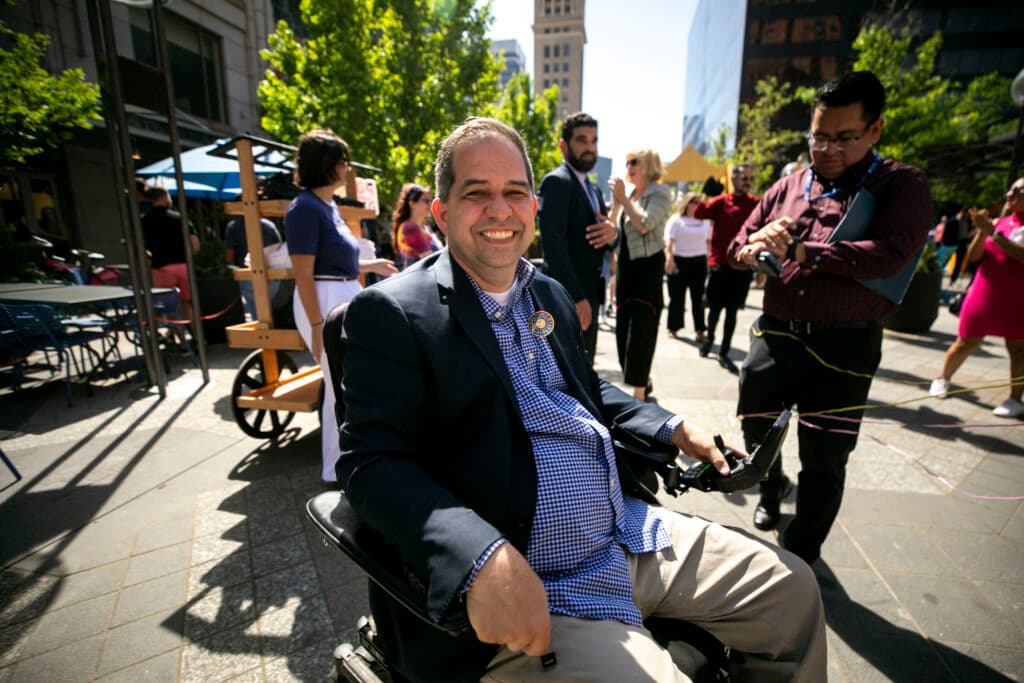
“Some of the technology responses could be you slow the scooter or safely stop the scooter, make the scooter beep, hit the rider's pocketbooks, as in increasing the cost of that segment of the ride,” he said.
Geofences already slow scooters on the 16th Street Mall and near Coors Field on Rockies’ game days, Hinds noted. But the current reliance on GPS makes that system spotty sometimes.
Hinds also suggested that the city needs to permit more docking stations, and possibly fine companies if scooters aren’t parked in them. The companies haven’t yet installed the hundreds of scooter corrals they agreed to in 2021, he said, and the city has done little to hold them accountable.
Other councilors, including Kevin Flynn and Sarah Parady, agreed that more corrals were necessary — especially in densely populated neighborhoods. And there appeared to be support for using fines to get better compliance from companies and riders.
“I think the fine piece is important,” Councilman Darrell Watson said.
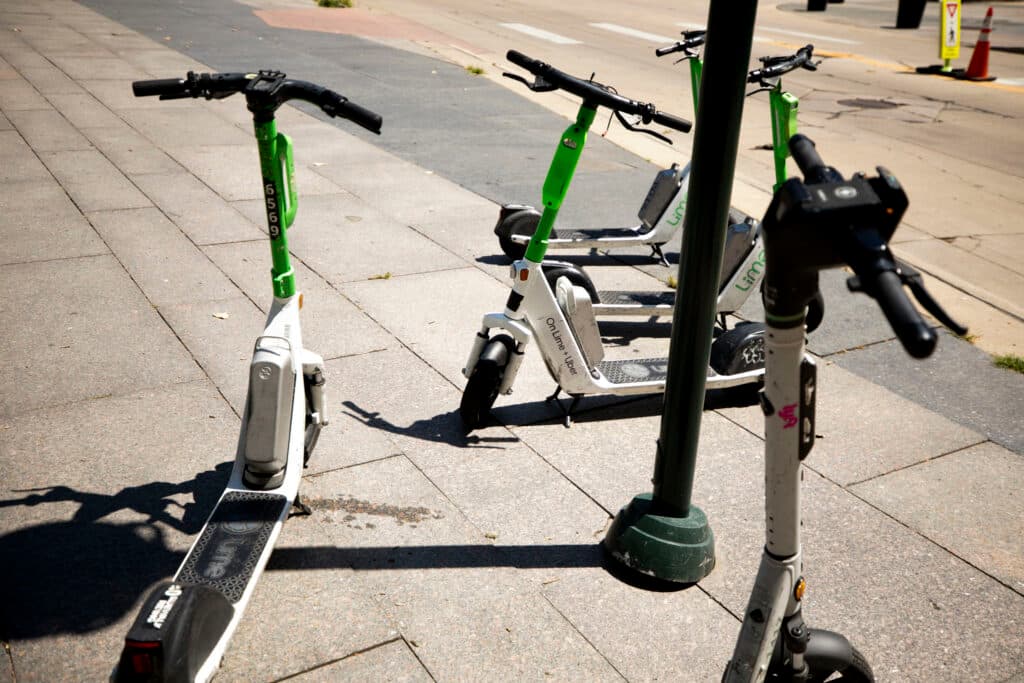
Cyndi Karvaski, spokeswoman for the Department of Transportation and Infrastructure, said the department had to develop design standards for the corrals and the permitting process itself. Companies identify and propose corral locations, which DOTI then must review and approve, and only then can construction happen. All that takes time, she said.
“DOTI continues to work proactively to process these permits to encourage proper parking amongst riders, particularly in high demand and high-density areas of the city,” she wrote in an email.
So far, Karvaski said, Lyft has installed 121 scooter corrals and Lime has installed 51.
Meanwhile, scooters and shared bikes are more popular than ever.
About 20 million trips were taken between late 2018 and June 2024 according to the city’s micro mobility dashboard, which is fed with industry data. Ridership reached an all-time high this summer, with peak days seeing more than 30,000 rides.
“As ridership has boomed since the pandemic we’ve invested heavily in safe riding and proper parking and we’re always working to do even more,” said Hayden Harvey, Lime’s director of government relations, in a statement.
The vast majority — 99.99 percent, Harvey wrote — of rides on Lime vehicles are taken without a reported incident. The company also plans to install 150 more parking corrals this year and mandatory parking areas in key areas. Lime is also working on AI-assisted technology “to continue cracking down on sidewalk riding and check end trip photos to ensure properly parked vehicles,” Harvey wrote.
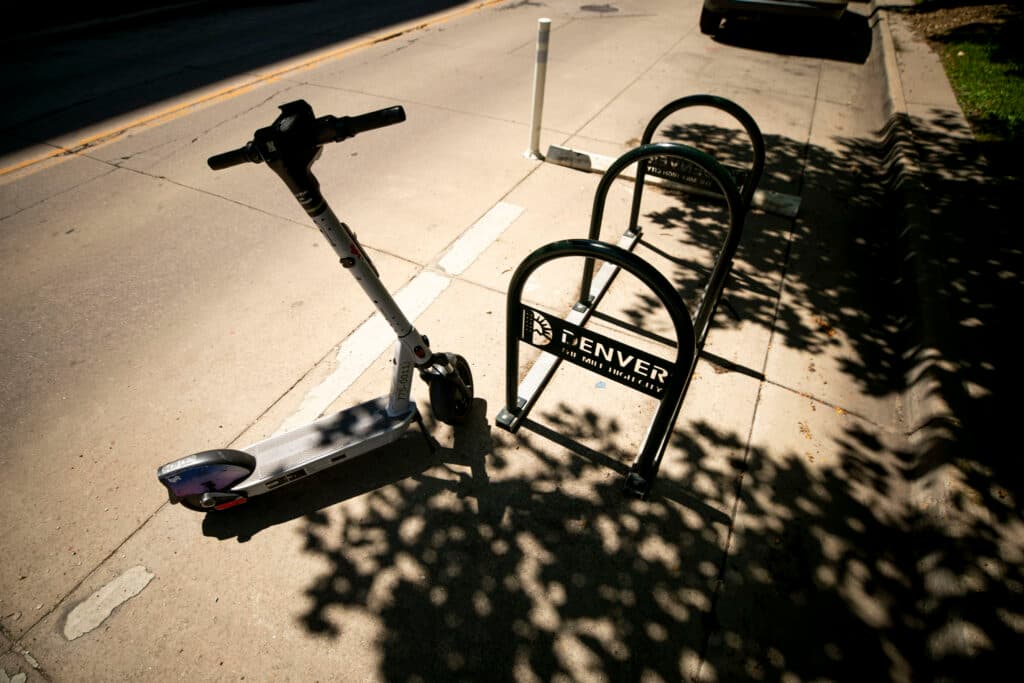
DOTI is preparing to “modernize” its shared bike and scooter program, Karvaski said, which will include surveying best practices from other cities and evaluating new tools and technologies.
“DOTI stands ready to work with City Council and other stakeholders to incorporate changes that best influence rider behaviors without removing mobility choice,” Karvaski wrote.
A Lyft spokesperson said the company promotes road rules through an in-app riding tutorial and scooter decals that remind riders to avoid sidewalks.
Denver may not have control over the scooters, but it does mostly control its streets.
The Council’s conversation mostly centered on how companies can help with compliance. But one councilor questioned where scooters riders are supposed to be when sidewalks are off-limits and cars dominate the streets that the city itself mostly controls.
“I was a proponent of not having scooters on the sidewalks,” said Council President Amanda Sandoval. “But at the same time when there's not a safe designated bike lane, what are we supposed to do?”
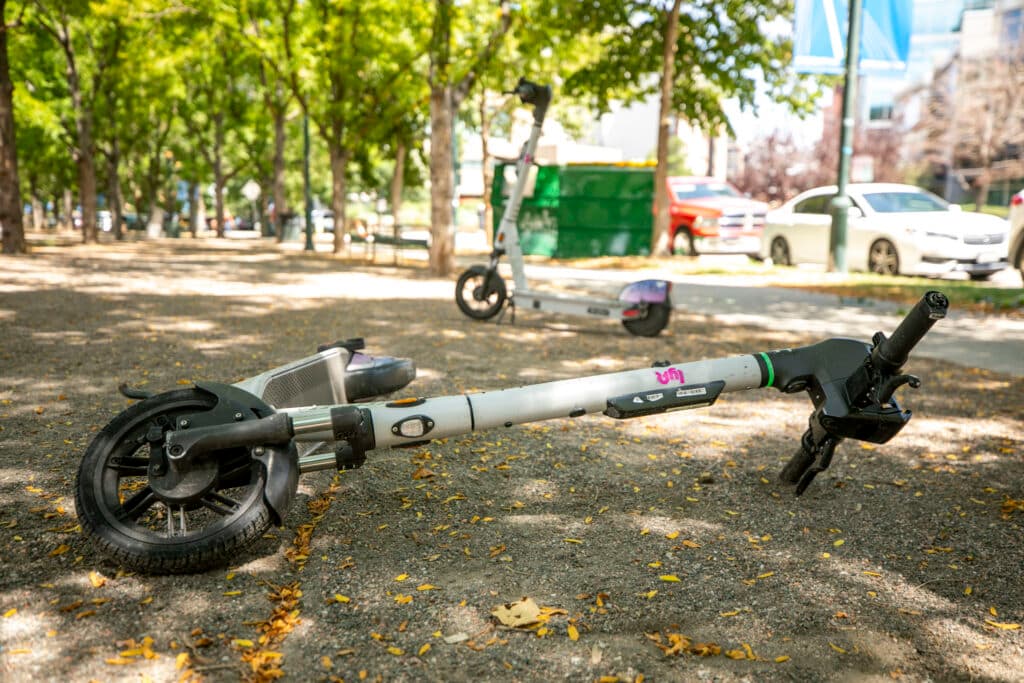
One obvious answer would be to create more bike lanes. The city has built more than 100 miles of them in recent years and has new plans to add many more, including on busy arterial streets.
The Lyft spokesperson also said it supports the city’s expansion of protected bike lanes, including a $15,000 contribution to the Blakes Street-Market Street project.
But more new lanes could take years to happen — if they survive the city’s own public feedback process.

